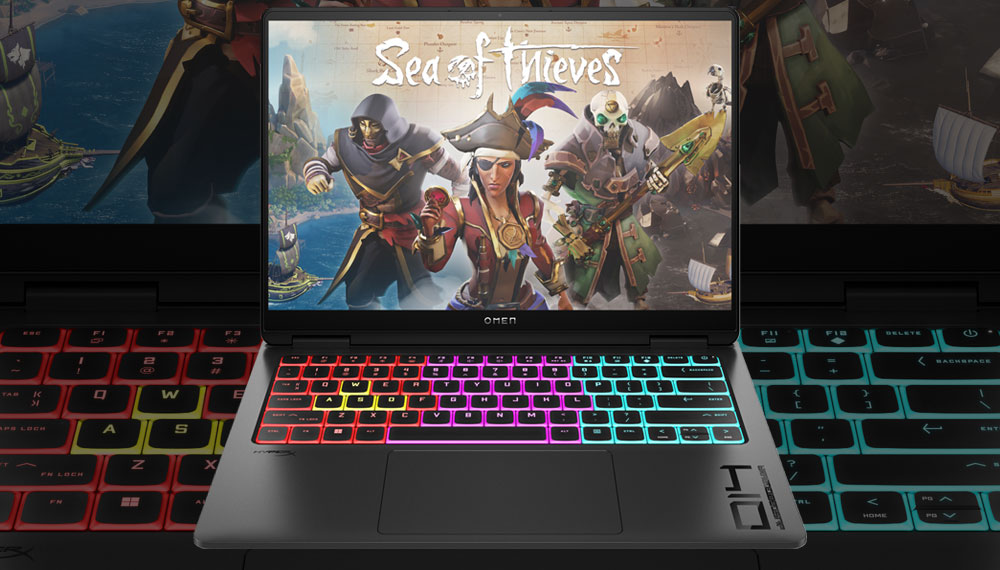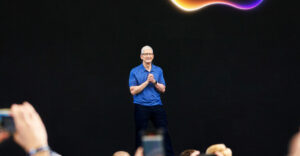Last week, I attended the HP Amplify Partner Conference along with the CEOs of AMD, Google, Intel, Nvidia, and Qualcomm. Each of these CEOs praised HP’s effort, but Jensen Huang stood out because he actively pitched HP’s new workstation and PC lines, which he had encouraged HP to build.
One of the common discussions was why Dell was getting so much credit, given that it doesn’t have an AI solution and significantly lagged HP in security, partners, sustainability, and AI.
At the end of the event, one of my favorite actors, Ryan Reynolds, joined virtually. Reynolds was on a shoot, but his partner was on stage and brought up the “Green Lantern” movie, which it’s been reported Reynolds regrets doing. I paid attention because I loved “Green Lantern” even though it underperformed.
I realized that HP’s problem with Dell was what often happens when the marketing for a product and the product itself becomes decoupled, or the wrong people are convinced that an offering is for them.
In the past, I’ve elegantly argued that this is a mismatch of form and function. Based on what was presented at Amplify, I’d like to name this problem the “Reynolds Green Lantern Conundrum.” Since this is a widespread problem, I will flesh it out this week.
We’ll close with my Product of the Week, a new gaming laptop from HP that is the most sustainable, advanced, and attractive gaming notebook coming to market: the HP Omen Transcend 14-inch notebook.
IBM, Dell, and Form Over Function
Back when I was working at IBM and after I’d left Internal Audit, I was in marketing and became concerned that we were actively telling governments not to buy competitive products because we had something better coming. That typically wouldn’t be a problem, but we had killed that entire effort, and there really wasn’t anything coming, let alone “something better.”
I met with the head of marketing and pointed out that I thought this was incredibly unethical and probably unhealthy because governments not only don’t have a sense of humor when you lie to them, but they can make your life a living hell if they find out — and it is pretty hard to conceal a promised product that has been terminated. IBM is one of the most ethical companies in the world, and he responded, “You don’t understand, Rob. This is marketing!”
Well, I’ve spent much of my advanced education in marketing and have a degree in it, and I can categorically say that isn’t true. I resigned shortly after that, and that CMO was fired (with a little help from me). But it stuck with me that a lot of folks, particularly engineers, equate marketing with lying, and that typically ends badly for the customers first and the company shortly thereafter.
You can get away with doing this if you are able to provide the solution before people find out you weren’t telling the truth. This approach has seen success in some high-profile cases, but it failed for Elizabeth Holmes and Theranos, showcasing that “fake it till you make it” has some rather severe downsides if you can’t execute.
It’s bad when a CEO does this, but potentially even worse if an executive in the company does it because then the CEO believes the lie and can be held accountable for it.
AMD/HP and Function Over Form
There is an even more frequent problem in our industry: Some companies are so afraid of the first problem that they over-pivot. Even though they have a massive competitive advantage, they don’t want to aggressively pitch it because they are worried they might be overselling it.
These companies underperform financially because this is not a “build it, and they will come” market. If you don’t market your advantage, you won’t get credit for it. Years ago, AMD was burned because it over-promoted an underperforming product and almost went out of business, so it is now understandably gun-shy.
However, when it comes to competing with Intel in the workstation segment, according to HP — which buys heavily from both AMD and Intel — AMD at the same price provides better battery life and performance.
We saw this play out when Lenovo took AMD’s impressive consumer Threadripper processor, put it in a workstation, and grabbed the top-end of the workstation market from Dell. Engineers buy workstations, and they tend to do their due diligence and were amazed at how good this part was.
AMD’s image is that it is a cheaper, lower-performing alternative to Intel. But this part is neither cheaper nor underperforming. HP launched its AI-focused Threadripper workstation that runs on Nvidia graphics at its Amplify conference, and Nvidia’s CEO was selling the heck out of it. (Piece of advice: Never, ever speak after Jensen Huang. The guy is amazing on stage.)
Windows 95, Jensen Huang, and AI
One of the interesting things Huang said was that HP’s AI-focused PC and workstation line and its marketing effort around it is a Windows 95 moment in that it would change PCs forever — and I agree with one enormous difference.
Windows 95 had an initial $400 million launch budget which had people lined up around the block to buy the product. While Microsoft later cut that budget because the company couldn’t support that kind of demand, it still highlights what is possible if the marketing effort aligns with the product.
Every leading tech CEO who took the stage more than suggested this AI effort was a massive game-changer, potentially far greater than Windows 95 could have been back then, given the state of technology. Yet the same demand isn’t being generated.
Typically, with any modern technology, we’ll argue that you’ll get something like a 10% productivity increase. Wharton did a study with last-generation AI showing it was more like 80%, meaning that companies that deploy AI effectively will outstrip their competitors faster than they can respond unless they, too, embrace AI.
These are quite literally company life-or-death products, but folks are thinking of them as a typical annual product cycle even though they are anything but.
The Unique Issue HP Is Addressing
The problem with all AI offerings is that too few people understand AI, including the vendors that make it and especially those that sell it. Both Nvidia’s and Google’s CEOs pointed this out on stage.
Huang is so excited about HP because HP listened to that warning. Its plan began with internal training, so HP is becoming an AI expert and has already deployed or is deploying it widely in the company. HP is also rolling out certification and training programs to ensure its channel (it is uniquely 85% indirect) and that customers are well trained.
So, it has hardware, services, software, training, and certifications. This coverage assures HP customers won’t be like most customers with failed AI deployments because one or more of those elements don’t exist.
Wrapping Up: The Ryan Reynolds ‘Green Lantern’ Conundrum
Assuming that few of you have seen “Green Lantern,” I’ll use “Dune” as the example here.
“Dune” is massively successful, but the older “Dune” movie that wasn’t successful was better. The difference was not how the movies were created but the lack of coupling between marketing and content.
For marketing to work, it needs to be involved from the start and have some say on the content. If marketing is done right and properly staffed (there are way too many people with marketing titles who don’t know marketing), the campaign is built based on the knowledge of the audience.
This same information should inform the production of the movie so the two form organically. The audience, or in the case of AI, the buyer, is excited about the product, and the product lives up to the hype, which is how you get a true hit.
If I had my way, the marketing team would be involved with the product and ethically vetted from cradle to launch to ensure promotional effort matches the product’s potential, and the product matches the demand that marketing creates.
The conundrum is that marketing people are often seen as dead weight during the creation of a product even though they, not the engineers, ensure the product’s success.
I’ve often thought that what you need to do to correct this is to build the marketing campaign first, test it, and then build the product to match the campaign rather than what is typically done, which is to build the product in a vacuum and then throw it to marketing to promote it.
Ironically, this may have been what is being done with the latest “Deadpool” movie (I’m a huge fan). I’m looking forward to seeing how that works out and hoping for a future Hal Jorden “Deadpool” crossover with Ryan Reynolds playing both roles. AI could make that happen.

HP Omen Transcend 14-Inch Laptop
What is the perfect PC? It should be different for everyone. For me, it’s the Qualcomm-based HP Elite Folio I use. For others, it might be something like the HP Omen Transcend 14-fb0097nr notebook that blends significant performance with a massive sustainability story (much of the product is built from high-quality recycled materials) and a HyperX keyboard. The keyboard really caught my eye because my hands often slip off the navigation keys when gaming, leading to an avoidable death.
This notebook has Intel’s latest AI-enhanced (NPU) Core 9 Ultra Processor, an amazing Nvidia GeForce RTX 4070 graphics card, and a reasonable (for a gaming notebook) $2,250 price.
The HP Omen Transcend is pretty in person. It is colored in Shadow Black Aluminum and weighs a reasonable 3.6 lbs., which is exceptionally light for a gaming notebook.

Omen Transcend Laptop 14-fb0097nr (Image Credit: HP)
When RTX graphics aren’t needed, it shifts to the Intel ARC graphics system, giving it up to 13 hours of video playback for movies and light work, which is impressive for a gaming notebook.
This product provides a foundation for the coming AI content, including AI-driven NPCs, which I’m personally looking forward to. It also gives you a great platform to play on, learn AI on as desktop AI offerings roll to market, and impress your friends because you’ll have AI support before anyone else you know does.
Granted, initially, much of what will use this AI subsystem is in early development, but this product is one of the first that is fully AI-ready. Thus, the HP Omen Transcend Laptop 14-inch is my Product of the Week.























































